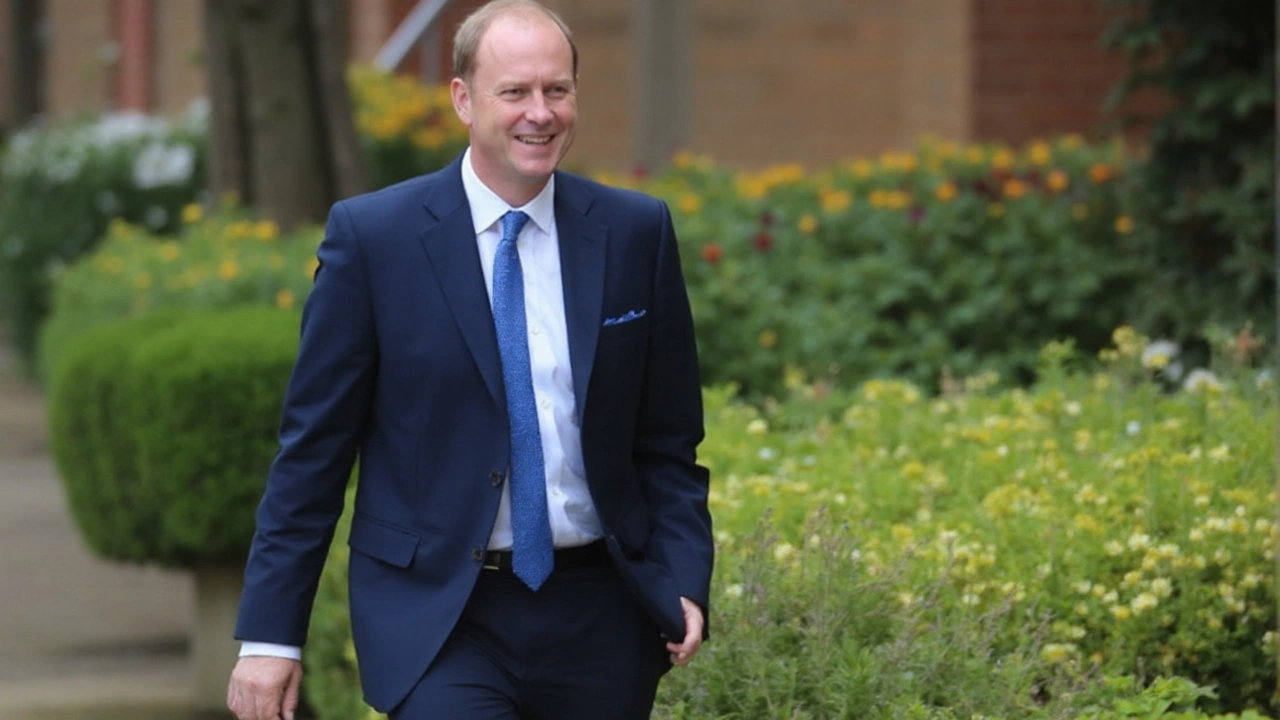
Angela Rayner has stepped down as Deputy Prime Minister after an official investigation found she breached the ministerial code by underpaying stamp duty on a property in Hove and not seeking expert tax advice. Prime Minister Keir Starmer accepted her resignation on 5 September 2025, telling colleagues he did so with genuine sadness. The Angela Rayner resignation immediately set off a cabinet reshuffle, with former Foreign Secretary David Lammy moving into the Deputy PM role.
The report into Rayner’s conduct said she had “acted with integrity,” but failed to meet the standard expected of ministers when handling her tax affairs. It stressed process over intent: she didn’t take expert advice and underpaid stamp duty on the flat, which together amounted to a breach of the code. That distinction matters, but the politics of tax and standards rarely offer much nuance with the public.
What happened and why it matters
The ministerial code is the rulebook for how members of the government should behave. It covers conflicts of interest, use of public resources, transparency, and personal conduct. On tax and financial matters, the expectation is simple: get it right and get advice if there’s any doubt. The investigation concluded Rayner didn’t do that.
Stamp duty is a one-off tax due on property purchases in England. The rate depends on the price and the buyer’s circumstances. When people underpay, HMRC can charge interest and penalties. The report didn’t accuse Rayner of intent to deceive; it focused on the failure to seek proper advice and the resulting underpayment. In government, process is substance. Falling short on process is enough to break the code.
Rayner’s exit hurts because she wasn’t just a senior minister—she was a political anchor. She came up through the trade union movement, spoke fluently to working-class voters, and gave Starmer’s leadership credibility with parts of the Labour left that were wary of him. Inside the party, she had clout few could match.
Starmer called her a “true friend” in a handwritten note and praised her as proof of the social mobility he wants to deliver in office. His message was clear: this resignation wasn’t sought, and it wasn’t welcome. But after a formal finding of a code breach, there was only one direction of travel.
There’s also timing. Westminster had been talking about “Phase Two” of the Starmer government—a shift from setting the tone to delivering on tough domestic priorities. Losing the Deputy Prime Minister at that pivot point complicates the narrative. Voters pay attention when standards and money collide, no matter the party.
David Lammy’s move into the Deputy PM slot is a statement of continuity and control. He knows the top table, he’s media-tested, and he’s combative when needed. The Deputy Prime Minister title carries no formal constitutional power, but it signals trust and status. With Lammy, Starmer keeps a heavyweight at his side while trying to steady the ship.
There’s also the party angle. The government role of Deputy PM is not the same as the elected post of Labour’s deputy leader. Rayner held both for a time, and her departure from government is expected to trigger or accelerate movement on the party side. How quickly that unfolds depends on internal rules and the party’s National Executive Committee. If there is a contest, it will test the balance between Labour’s grassroots and its leadership.
Rayner is not disappearing. On the backbenches, she becomes a free agent with a following. If she chooses to build a platform—focused on workers’ rights, cost of living, and social mobility—she could shape debates the government would rather control. There’s no sign she wants a fight with Starmer. But influence often follows attention, and she attracts plenty of it.
For Labour, the risk is twofold. First, a dent to the government’s standards narrative. Second, a visible gap in its internal coalition. Rayner bridged parts of the movement that don’t always feel heard. Without her in the room, Starmer will need other voices who can connect the leadership to the party’s activist base and its trade union roots.
It also raises practical questions. Who now fronts the agenda Rayner pushed—on regional inequality, renters, and local power? Who rallies union support when budgets get tight and reform gets messy? Personnel is policy; you notice when a key player leaves.
Opponents will keep this simple: a senior minister failed on tax and broke the rules. Even where the facts are nuanced, simplicity wins in politics. The best defence for the government now is competence and delivery—weeks of unshowy progress that makes this story fade into the background.
As for the public, the reaction may be blunt. People expect senior figures to get their tax right. They also respect accountability when it looks genuine. By stepping down, Rayner spares the government a slow bleed, but the damage to trust will take time to repair.
Lammy’s arrival brings a different kind of political ballast. He’s a campaigner by instinct and a lawyer by training. Expect more direct messaging, fewer hedged lines. In the short term, his job is to offer stability and show grip while the reshuffle settles. Longer term, he’ll be judged on whether he can help pull together Labour’s different tribes and keep the focus on delivery.
Inside Whitehall, this will be read as a warning about process. Ministers often lean on officials for guidance, but tax is personal. The safest route is professional advice and full disclosure. That’s slower, sometimes frustrating, but it keeps careers from ending like this.
For Rayner, the path back is open if she wants it. British politics has a short memory for honest mistakes and a long memory for fighters who get results. If she spends time in the policy trenches, builds alliances, and shows discipline, she could yet return to high office.

What comes next for Labour
The next few weeks will be busy: a reshuffle to lock in, a message to reset, and a party machine to manage. The government will want calm broadcasts of competence—budgets, services, and delivery—while the party sorts its internal business away from the cameras.
If Labour does move to choose a new deputy leader, expect a timetable that gives members a say but avoids a long, messy contest. The field will reflect the party’s broad church: union-backed candidates, pragmatists from the front bench, and a few wild cards. The leadership will try to keep the debate on jobs, services, and standards—not internal point-scoring.
Policy won’t stop for politics. Big calls on spending, reform of public services, and growth plans will keep landing. The Deputy PM is a crucial political operator across those files. Lammy will need to forge tight links with the Treasury and the Cabinet Office fast to avoid gaps in delivery.
Rayner’s own focus may shift to issues where she’s strongest: workers’ rights, social housing, early years, and regional inequality. If she picks those fights from the backbenches with discipline, she’ll shape the agenda more than many frontbenchers do.
Key questions now:
- Does the reshuffle stop at Lammy, or does Starmer move other big pieces to show a fresh start?
- How quickly does Labour organize any deputy leadership process, and who stands?
- Can the government turn the page with solid delivery before party conference season?
- Will Rayner choose to be a quiet loyalist or a loud advocate on the issues she owns?
- Does this episode harden new rules of the road on ministers’ tax disclosures?
This is a pivotal moment for a government that wants to be judged on results. It has lost a front-line operator who connected different corners of the Labour family and spoke plainly to voters beyond Westminster. The job now is to show that standards are upheld, the machine still runs, and the policy agenda keeps moving without a wobble.